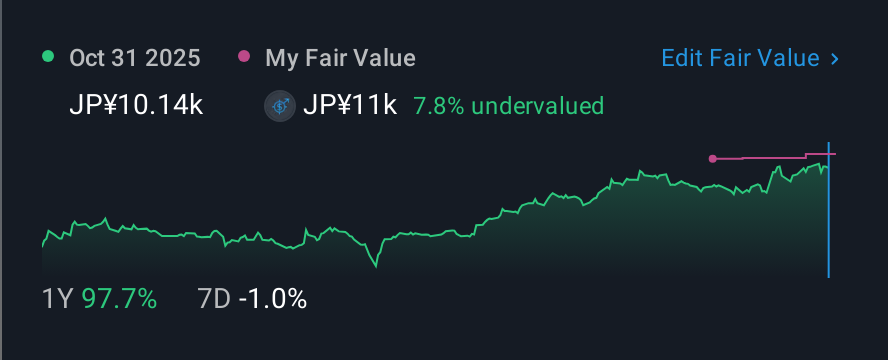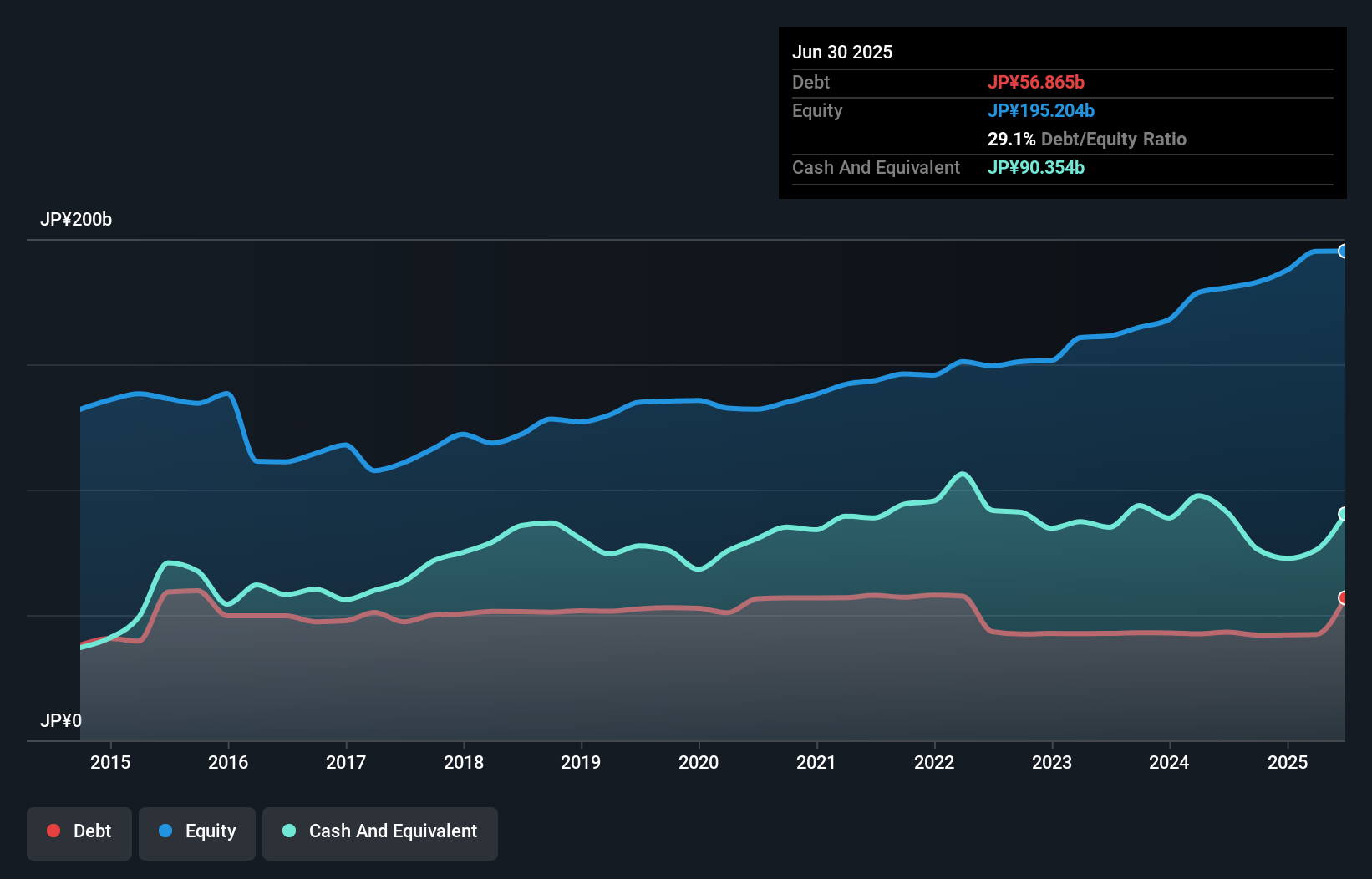Here's Why Japan Steel Works (TSE:5631) Can Manage Its Debt Responsibly

Some say volatility, rather than debt, is the best way to think about risk as an investor, but Warren Buffett famously said that 'Volatility is far from synonymous with risk.' So it seems the smart money knows that debt - which is usually involved in bankruptcies - is a very important factor, when you assess how risky a company is. As with many other companies The Japan Steel Works, Ltd. (TSE:5631) makes use of debt. But should shareholders be worried about its use of debt?
What Risk Does Debt Bring?
Debt is a tool to help businesses grow, but if a business is incapable of paying off its lenders, then it exists at their mercy. Ultimately, if the company can't fulfill its legal obligations to repay debt, shareholders could walk away with nothing. However, a more common (but still painful) scenario is that it has to raise new equity capital at a low price, thus permanently diluting shareholders. Of course, plenty of companies use debt to fund growth, without any negative consequences. The first step when considering a company's debt levels is to consider its cash and debt together.
How Much Debt Does Japan Steel Works Carry?
As you can see below, at the end of June 2025, Japan Steel Works had JP¥56.9b of debt, up from JP¥43.1b a year ago. Click the image for more detail. But it also has JP¥90.4b in cash to offset that, meaning it has JP¥33.5b net cash.

A Look At Japan Steel Works' Liabilities
The latest balance sheet data shows that Japan Steel Works had liabilities of JP¥140.5b due within a year, and liabilities of JP¥59.9b falling due after that. Offsetting these obligations, it had cash of JP¥90.4b as well as receivables valued at JP¥49.7b due within 12 months. So its liabilities total JP¥60.3b more than the combination of its cash and short-term receivables.
Since publicly traded Japan Steel Works shares are worth a total of JP¥664.6b, it seems unlikely that this level of liabilities would be a major threat. But there are sufficient liabilities that we would certainly recommend shareholders continue to monitor the balance sheet, going forward. Despite its noteworthy liabilities, Japan Steel Works boasts net cash, so it's fair to say it does not have a heavy debt load!
Check out our latest analysis for Japan Steel Works
Also positive, Japan Steel Works grew its EBIT by 22% in the last year, and that should make it easier to pay down debt, going forward. When analysing debt levels, the balance sheet is the obvious place to start. But ultimately the future profitability of the business will decide if Japan Steel Works can strengthen its balance sheet over time. So if you want to see what the professionals think, you might find this free report on analyst profit forecasts to be interesting.
But our final consideration is also important, because a company cannot pay debt with paper profits; it needs cold hard cash. Japan Steel Works may have net cash on the balance sheet, but it is still interesting to look at how well the business converts its earnings before interest and tax (EBIT) to free cash flow, because that will influence both its need for, and its capacity to manage debt. During the last three years, Japan Steel Works burned a lot of cash. While investors are no doubt expecting a reversal of that situation in due course, it clearly does mean its use of debt is more risky.
Summing Up
While it is always sensible to look at a company's total liabilities, it is very reassuring that Japan Steel Works has JP¥33.5b in net cash. And it impressed us with its EBIT growth of 22% over the last year. So we don't have any problem with Japan Steel Works's use of debt. There's no doubt that we learn most about debt from the balance sheet. But ultimately, every company can contain risks that exist outside of the balance sheet. For example, we've discovered 1 warning sign for Japan Steel Works that you should be aware of before investing here.
At the end of the day, it's often better to focus on companies that are free from net debt. You can access our special list of such companies (all with a track record of profit growth). It's free.
New: Manage All Your Stock Portfolios in One Place
We've created the ultimate portfolio companion for stock investors, and it's free.
• Connect an unlimited number of Portfolios and see your total in one currency
• Be alerted to new Warning Signs or Risks via email or mobile
• Track the Fair Value of your stocks
Have feedback on this article? Concerned about the content? Get in touch with us directly. Alternatively, email editorial-team (at) simplywallst.com.
This article by Simply Wall St is general in nature. We provide commentary based on historical data and analyst forecasts only using an unbiased methodology and our articles are not intended to be financial advice. It does not constitute a recommendation to buy or sell any stock, and does not take account of your objectives, or your financial situation. We aim to bring you long-term focused analysis driven by fundamental data. Note that our analysis may not factor in the latest price-sensitive company announcements or qualitative material. Simply Wall St has no position in any stocks mentioned.
About TSE:5631
Japan Steel Works
Engages in the provision of industrial machinery products, and material and engineering solutions in Japan and internationally.
Solid track record with excellent balance sheet.
Market Insights
Community Narratives



